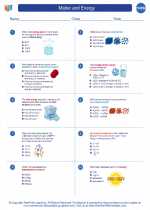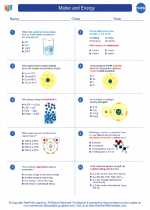Venus: The Second Planet from the Sun
Venus is the second planet from the sun and the hottest planet in our solar system. It is often referred to as Earth's "sister planet" due to its similar size, mass, and composition. However, Venus has a very different atmosphere and surface conditions compared to Earth.
Key Facts about Venus
- Distance from the sun: About 67.2 million miles (108.2 million kilometers)
- Orbital period: Approximately 225 Earth days
- Atmosphere: Mostly carbon dioxide with clouds of sulfuric acid
- Surface temperature: Around 870 degrees Fahrenheit (465 degrees Celsius)
- Surface features: Volcanoes, vast plains, and highland regions
Atmosphere and Climate
Venus has a thick atmosphere composed mainly of carbon dioxide, with clouds of sulfuric acid. These clouds create an intense greenhouse effect, trapping heat and causing the planet's surface temperature to be much hotter than that of Mercury, even though Mercury is closer to the sun.
Surface Features
Venus has a diverse array of surface features, including vast plains, highland regions, and thousands of volcanoes. One of the most notable features is Maxwell Montes, the highest mountain on Venus, and the planet's lack of water and tectonic activity has preserved many impact craters on its surface.
Study Guide for Understanding Venus
- What are the main components of Venus's atmosphere, and how do they contribute to the planet's extreme temperatures?
- Compare and contrast the surface features of Venus with those of Earth.
- Discuss the significance of Venus's thick atmosphere in relation to the greenhouse effect and its impact on the planet's climate.
- Explain the phenomenon of Venus's slow retrograde rotation and its potential causes.
- Investigate the ongoing scientific missions and research focused on studying Venus, and discuss the potential for future human exploration of the planet.
Studying Venus provides valuable insights into the extreme conditions that can exist on terrestrial planets and offers a unique perspective on the processes that shape planetary atmospheres and surfaces.
.◂Chemistry Worksheets and Study Guides High School. Matter and Energy

 Worksheet/Answer key
Worksheet/Answer key
 Worksheet/Answer key
Worksheet/Answer key
